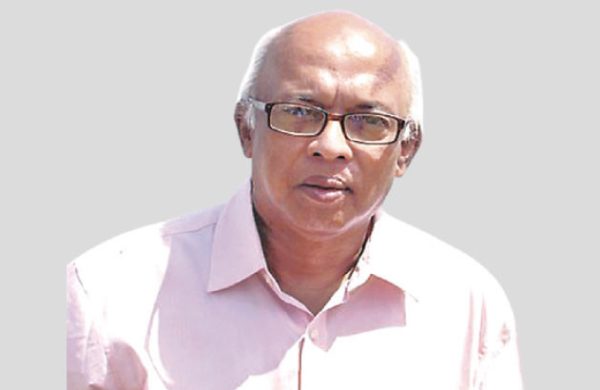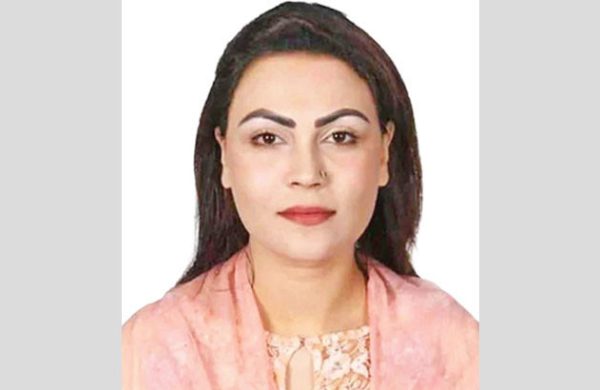Dr Yunus’s contribution to poverty alleviation
- Update Time : Thursday, August 8, 2024

–Enamul Hafiz Latifee–
The saga of Muhammad Yunus, the Nobel laureate known for pioneering microfinance through the Grameen Bank, is a stark reminder of how political vendettas can overshadow achievements that have had a profound impact on millions of lives. In Bangladesh, Yunus has been admired globally for his contributions to poverty alleviation but vilified domestically by the then Sheikh Hasina’s government.
The Genesis of the Conflict: The relationship between Sheikh Hasina and Muhammad Yunus was not always contentious. In fact, they were once allies. In 1997, Yunus and his high-profile network organized a Microcredit Summit in Washington, D.C., attended by global dignitaries, including Hasina. At that time, Yunus was already an established figure in the international community, while Hasina was solidifying her political base in Bangladesh after her party, the Awami League, came to power in 1996.
However, the seeds of discord were sown in 2007 when Yunus briefly entered the political arena, announcing the formation of a political party, Nagorik Shakti (Citizen Power). Although Yunus quickly retreated from politics, the move was perceived as a threat by Hasina, who was then imprisoned during a military-backed caretaker government regime. This incident marked the beginning of a protracted and bitter conflict between the two prominent figures in Bangladesh.
The 2011 Dismissal from Grameen Bank: The situation took a dramatic turn in 2011 when the government forcibly removed Yunus from his position as Managing Director of Grameen Bank, citing that he had exceeded the legal retirement age of 60. Despite Yunus’s contestation in court, the decision was upheld. This move was seen not only as a legal action but also as a political maneuver to diminish Yunus’s influence. His removal from Grameen Bank, an institution he founded and nurtured, was a significant blow to his legacy and marked a pivotal moment in his persecution.
Accusations and Public Denunciations: The years following Yunus’s removal were marked by a series of accusations and public denunciations by Sheikh Hasina and her government. In 2012, Hasina accused Yunus of influencing the World Bank to withdraw funding from the Padma Bridge project due to alleged corruption. No substantial evidence was presented to support these claims, but the damage to Yunus’s reputation was considerable.
Hasina’s public attacks did not stop there. In various speeches and parliamentary sessions, she referred to Yunus in derogatory terms, such as a ‘bloodsucker of the poor’, accusing him of exploiting the poor through microfinance. She also alleged that Yunus had diverted funds from Grameen Bank to other ventures like Grameen Shakti, enriching himself and his relatives. These accusations were part of a broader strategy to discredit Yunus and undermine his achievements.
The 2023 Global Outcry: In September 2023, over 170 global leaders and Nobel laureates, including former US President Barack Obama and former UN Secretary-General Ban Ki-moon, signed an open letter urging the then Prime Minister Hasina to halt the judicial harassment of Yunus. Despite this international pressure, the Bangladeshi government continued its politically motivated legal actions against Yunus, who was facing numerous charges, including money laundering, tax evasion, and corruption in nearly 200 cases.
This period saw Yunus increasingly isolated within his own country, despite his significant international support. The relentless legal battles and public vilification were taking a toll on his health and well-being, as well as on the operations of Grameen Bank and its associated entities.
The 2024 Conviction and Protests: The year 2024 marked anincrease in the persecution of Muhammad Yunus. On January 1, a Bangladeshi labor court convicted Yunus of violating labor laws and sentenced him to six months in prison. Although Yunus remained out on extended bail, he continued to face a barrage of legal charges. The government’s actions sparked widespread protests and drew further international condemnation.
On February 12, 2024, the situation escalated dramatically when government representatives forcibly occupied Yunus’s office building, harassing employees and disrupting operations. This brazen act of intimidation was part of a broader strategy to suppress Yunus’s influence and cripple his social business initiatives that has been applauded globally. The incident led to nationwide protests, with Yunus’s supporters demanding an end to the government’s harassment and calling for justice.
The Quota Movement That Ousted Sheikh Hasina: Meanwhile, the student-led quota movement, which began on July 1, 2024, in Bangladesh, was a response to the government’s unjust civil service job quotas. The movement rapidly escalated into widespread protests demanding broader democratic reforms and transparency. As the protests grew, the Hasina government’s response became increasingly severe, involving internet blackouts and violent crackdowns. Different sources indicate that from July 1 to August 5, 2024, more than 490 people were killed, of whom around 60 were children, more than 33,000 were injured, and over 11,000 were arrested or went missing during clashes with security forces.
Sheikh Hasina, in a desperate attempt to retain power, ordered security forces to use lethal force against the protesters, despite warnings from top officials about the deteriorating situation. These brutal measures only intensified the public’s anger, leading to further unrest. The relentless pressure from the protests and the mounting death toll eventually forced Hasina to resign and flee the country on August 5, 2024. Her departure marked a significant victory for the student protesters and a critical moment in Bangladesh’s struggle for democratic governance.
Hasina’s Departure and Yunus’s Potential Role in Interim Government: As soon as Hasina fled the country, the protestors called for an interim government to be led by Yunus. The military announced the formation of an interim government, and there were calls for Yunus to lead this temporary administration.In a historic turn of events, Yunus agreed and returned to Bangladesh to fulfill the protesters’ request for him to serve as head of the interim government. This move was seen as a significant step towards restoring democracy and addressing the grievances of the protesters, who had faced violent crackdowns during the unrest.
The Broader Implications: The persecution of Muhammad Yunus by Sheikh Hasina and her government underscores the broader issues of political vendettas and the misuse of judicial power in Bangladesh. It highlights how political leaders can leverage their authority to settle personal scores and stifle dissent. The relentless harassment of Yunus, despite his global acclaim and significant contributions to poverty alleviation, reflects a disturbing trend towards authoritarianism.
The international community’s response to Yunus’s persecution has been robust, with numerous leaders and organizations calling for an end to the judicial harassment. However, the effectiveness of this pressure remains uncertain, given the entrenched political dynamics in Bangladesh. The chronicle of Muhammad Yunus and Sheikh Hasina is a cautionary tale of how personal vendettas and political motives can lead to the persecution of even the most revered individuals. Yunus’s contributions to poverty alleviation and social entrepreneurship are undeniable, yet we have so far failed to utilize his full potential for the total betterment of the country’s people, thanks to the Gen-Z, at least they could realize in this high time. As Bangladesh navigates its political future, the treatment of Muhammad Yunus serves as a blunt reminder of the need for judicial independence, political tolerance, and respect for human rights. The international community must continue to advocate for these principles and support individuals like Yunus who have dedicated their lives to improving the lives of the poor.
The resignation of Sheikh Hasina and the potential leadership of Muhammad Yunus in an interim government offer a glimmer of hope for a more democratic and just Bangladesh. However, the path to achieving this vision will require sustained effort and vigilance from both domestic and international actors. This effort is crucial to restore societal harmony, which Sheikh Hasina’s loyalists are trying to disrupt through terrorist activities. Their aim is twofold: to foil the rise of new thinkers to power and to create the illusion that Sheikh Hasina is indispensable for stabilizing Bangladesh-an eyewash intended to seek international intervention.
The writer is Joint Secretary (Research Fellow) of Bangladesh Association of Software and Information Services (BASIS)



















